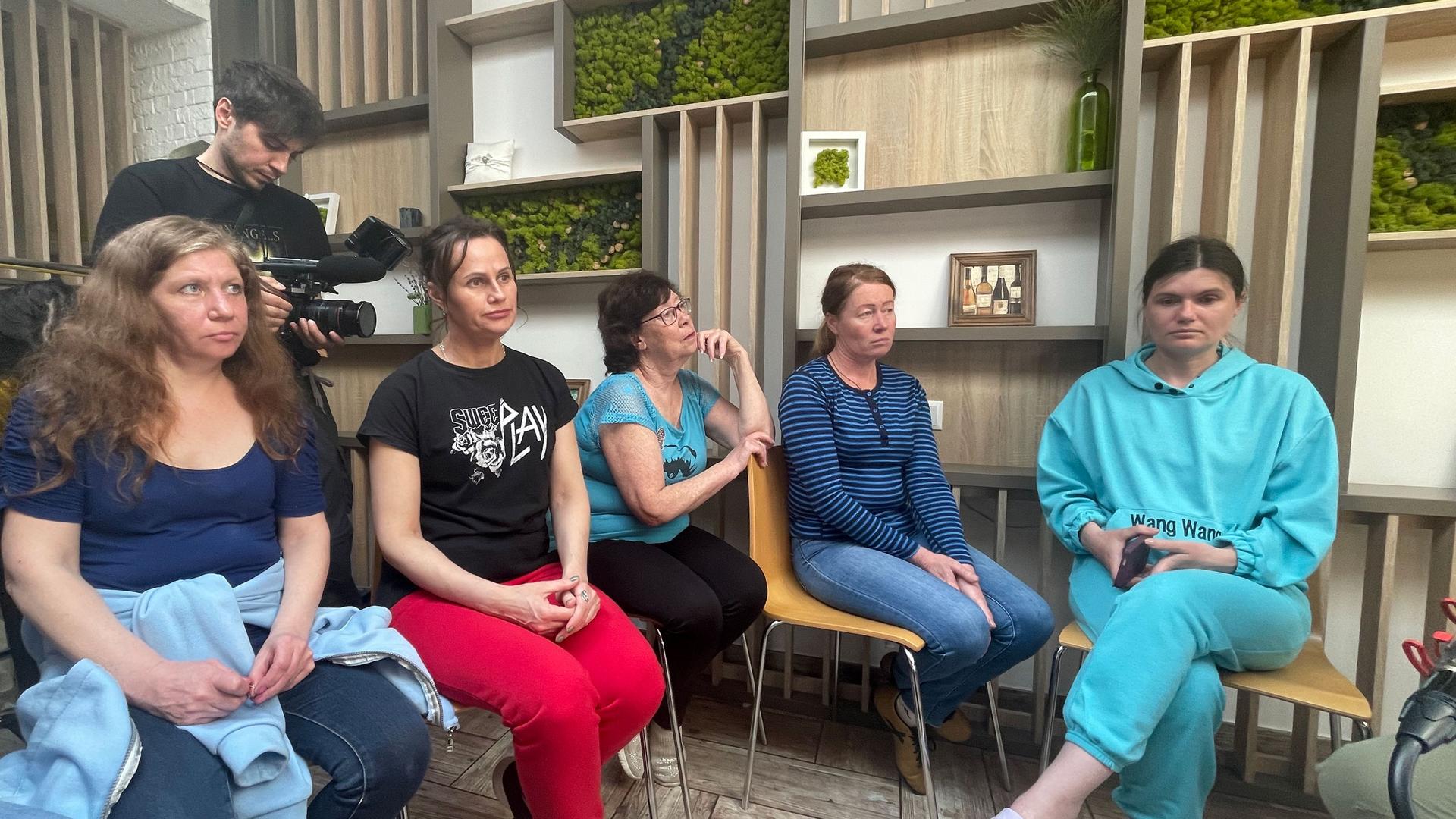In mid-February, Russian President Vladimir Putin said that more Russian families have been adopting kids from Ukraine.
Maria Lvova-Belova, the president’s so-called children’s rights commissioner, has been leading these efforts.
When the two met back in February, Lvova-Belova said that she personally adopted a child from Mariupol, a city in southern Ukraine occupied by Russian forces, and thanked Putin for all his support.
But deporting children from parts of Ukraine to Russia is illegal under international law. And Ukrainian families have been trying to bring their children back home.

In March, the International Criminal Court announced two arrest warrants for Putin and Lvova-Belova “for the alleged war-crimes of deportation of children from Ukrainian-occupied territories into the Russian Federation.”
“Children are taken from orphanages, and from occupied territory, and in certain instances, those children are also adopted into Russian families.”
“Children are taken from orphanages, and from occupied territory, and in certain instances, those children are also adopted into Russian families,” said Wayne Jordash, an international criminal lawyer based in Kyiv.
Russian authorities claim they are removing kids from war zones and sending them to the safety of Russia for their own protection.
Jordash said this is not a credible explanation.
“Why haven’t they been in touch with the Ukrainian government immediately to find a safe place for those children to be returned to? Why would you place those children into Russian families? There’s many things the Russian administration could do to find their families, reunite them, and it’s done barely nothing,” he said.
The Ukrainian government said at least 19,000 children have been taken to Russia, but the exact number remains unknown, Jordash said.
“Imagine putting up children for adoption without doing everything you can to find their parents … so, this is about extinguishing Ukrainian identity. If you can condition Ukrainian children to believe that they are part of Russia, then you won’t need to use such brutal force in the future to subjugate Ukraine.”
Some Ukrainian parents with missing children feel like they have no choice, so they’re taking matters into their own hands.
Save Ukraine, a nonprofit organization, is organizing rescue missions to help Ukrainian parents get their children back.
At a recent event in Kyiv, about a dozen parents and guardians, all of them women, gathered before traveling to Russia and occupied Ukrainian territory.

Mykola Kuleba, the founder and CEO of Save Ukraine, told the parents that this will be a stressful journey — physically and psychologically.
He also warned that they will likely be questioned by Russian security services.
When some parents expressed fear, Kuleba reassured them. He also said their children will receive psychological support to readjust to life back in Ukraine.
Tatiana, a mother from Kherson, said her 17-year-old son Vlad has been in Russian custody somewhere in occupied Ukrainian territory.
She asked not to use her last name fearing mistreatment of her son if she speaks with the media.
Tatiana told the group that her son loves boxing and asked Kuleba if he could meet with a professional boxer upon his return. Kuleba said he could try to make that happen.
The women then piled into a van and Kuleba helped them load their bags into the trunk.
“We are really afraid about this group of mothers and we are waiting for them, praying for them, and we believe that we will be able to return all children who were abducted before,” he said.

This is the seventh trip organized by Kuleba’s group.
He said they are high-risk trips because they are not officially authorized by Russian authorities.
When Ukrainians arrive in Russia, the parents could face hours of questioning by the FSB, Russia’s state security agency.
But surprisingly, these trips often work. They’ve helped bring more than 350 kids back to their families in Ukraine.
A few weeks after this particular trip by Ukrainian parents, Kuleba’s group announced that 20 children were brought back home.
Tatiana’s son Vlad was one of them.
And he later got to meet Volodymyr Klitschko, a legendary Ukrainian boxer.
Volodymyr Solohub contributed to this report.
Our coverage reaches millions each week, but only a small fraction of listeners contribute to sustain our program. We still need 224 more people to donate $100 or $10/monthly to unlock our $67,000 match. Will you help us get there today?
